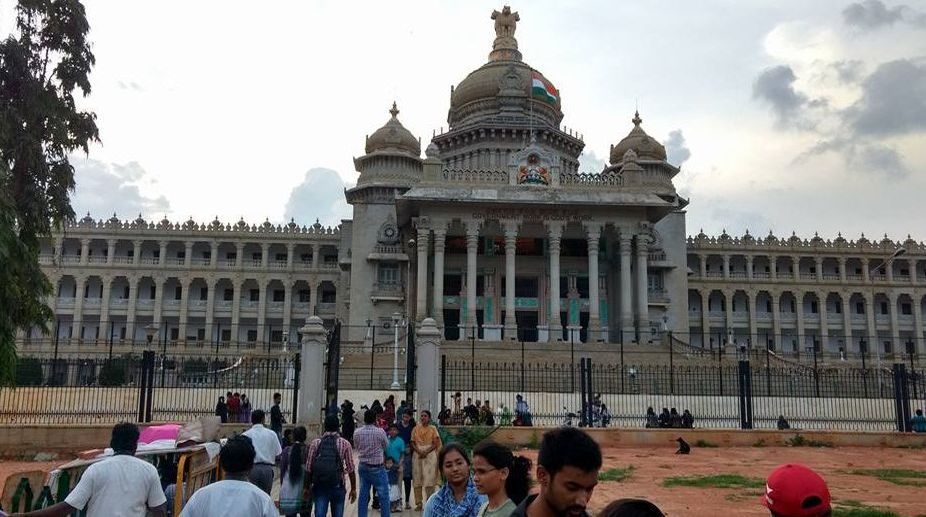SFIO probe into Kerala CM’s daughter’s firm is legal and irrevocable: Karnataka High Court
Justice M Nagaprasanna, who pronounced the verdict on the petition on Friday, said that a copy of the order would be released on February 17.

(Photo: Facebook)
The Karnataka Assembly has passed a resolution against Ravi Belagere, editor of Hai Bangalore, and Anil Raj, editor and publisher of Yelahanka Voice, for alleged breach of privilege, and sentenced them to one-year imprisonment and a fine of Rs 10,000 each.
The police are unable to execute the order because the Karnataka High Court advised the Speaker of the Assembly, KB Koliwad, to reconsider the resolution and resolve the issue “in the interest of the system” and to ensure harmony between the two estates. In the Constituent Assembly, Dr. Rajendra Prasad said Parliament would define its powers and privileges and those of state legislatures, but until Parliament passed the legislation, the privileges and powers of Britain’s House of Commons would apply.
The House of Commons continues to have the power to fine and/or sentence a person to a jail term. But it has not been invoked even once since 1880. Without codifying privileges of legislators, as promised by Rajendra Prasad, our legislators have been misusing the power to punish or silence journalists for exposing their misdeeds.
Advertisement
Articles 105 and 194 of the Constitution give immunity from judicial scrutiny to our parliamentarians and legislators for all speeches made within the respective chambers. The power of privilege has been used against journalists in several instances across the country, forcing them to toe the official line and not stray from the narrow path.
A Committee of Privileges of the Lok Sabha examined the issue of codification in 2008 and came to the conclusion there was no need for it. It suits the interest of legislators to leave things vague. The two editors found guilty of breach of privilege by the Karnataka Assembly appeared before the Speaker and submitted a petition for reconsideration of the resolution.
They contended their alleged breach of privilege (writings about two MLAs considered derogatory) was not committed within the jurisdiction of the legislature and had in no way obstructed the MLAs from discharging their duties. The two editors were not served the breach of privilege notice personally.
The Speaker would do well to follow the advice of the High Court and ensure harmonious relationship between the press and the legislature, vital pillars of democracy. Pending codification of privileges, legislatures should follow the 1964 judgment of the seven-judge Constitution Bench of the Supreme Court in the famous Keshav Singh case.
Chief Justice PB Gajendragadkar, who wrote the majority judgment, said, “The power to punish for contempt, large as it is, must always be exercised cautiously, wisely and with circumspection. Frequent and indiscriminate use of this power in anger or irritation would not help to sustain the dignity of the court but may sometimes affect it adversely.
Wise judges never forget that the best way to sustain the dignity and status of their office is to deserve respect from the public at large by the quality of their judgments.
Advertisement